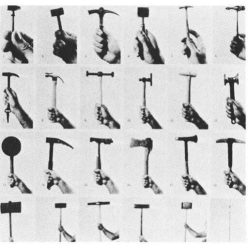The resources shared for this blog offer different perspectives on the social, cultural and political perceptions of religion in contemporary society: namely highlighting the way religion is positioned as antithetical to rational, liberal, Western thought. As with the first blog, I found the theoretical reading around epistemic justice a really useful framework for unpicking the shorter resources included as part of this task, allowing me to situate religious discrimination in a wider, structural context. For example, the last video discusses religious identity being seen as ‘other’ and the interviewee speaks of trying to find common ground with people who may find his identity threatening by referring to or emphasising other aspects of his identity. I could not but see this in the context of epistemic injustice where “a subject suppresses their own testimony out of only an anticipatory fear owing to their not knowing whether their interlocutor will understand their religious beliefs and practices” (Rekis, 2023, p.785-786).
In her essay, Jaclyn Rekis outlines the way epistemic injustice operates with regards to religious practices, mapping out its implications by considering religious identity from the point of view of social identity and as a worldview (2023). Rekis refers to Fricker’s definition of epistemic injustice as instances where “individuals can be harmed in their capacity as knowers when their testimony is wrongly diminished according to inequalities in social power” (Rekis, 2023, p.780). The way epistemic justice operates in relation to religious identity is mainly through a denial of religious testimony as a valid form of knowledge and experience of the world. According to Rekis, this is particularly salient in secular environments such as academia where ‘rational’, naturalistic worldview dominates, implicitly discrediting other forms of knowledge or other types of knowing.
This text made me reflect carefully on my teaching practice in Contextual and Theoretical Studies. We often encourage students to draw on their own experiences in their research, especially when it comes to third year dissertation modules (CTS3). However, we still ask students to follow ‘appropriate academic standards’ in their research, drawing from ‘credible’ sources and supporting their writing with ‘evidence’. Reading the essay cited above has made me realise how such language is deeply rooted in a Western secular tradition that may present barriers or exclude forms of knowing, such as religious knowledge, that Rekis outlines, as well as tacit or embodied knowledge.
This resource has made me question how and what we teach, what expectations we set for students and consider how we may implicitly discriminate against students whose religious identity shapes their positionality, their worldview, their interests and their creative work. Equally, as Kwame Anthony Appiah discusses in his talk, it has also made me reflect on how these different forms of knowledge production – one more ‘secular’, based on written forms, and the other more ‘religious’, based on oral traditions, for example – can coexist and how we can support students to engage with different modes of research or approaches to knowledge. In the first instance, it has highlighted the importance of reviewing the language of our unit guides, assignment briefs and learning outcomes to consider whether there may be different ways of thinking about ‘Knowledge’ and ‘Enquiry’ as two main criteria through which we assess CTS units.

Hi Rujana, I really enjoyed your blog on religion’s social dynamics and epistemic justice. I thought your link between theory and real-life discrimination was insightful, especially the example from the last video. Reflecting on how our academic standards might exclude religious perspectives was a great point. Your commitment to revising our unit guides and assignment briefs to be more inclusive is inspiring. It’s clear you’re dedicated to making our teaching practices more inclusive and understanding.
Hi Jacqui, thanks so much for your reply. This comment has made me link this post to the last blog around policy and race-based discrimination. It has made me think about how certain policies around learning outcomes and the language used in assessment, for example, may further enhance inequality and discrimination.
This blog post illuminates the critical issue of epistemic injustice in the context of religious identity. The resources provided, particularly Jaclyn Rekis’ essay, offer valuable insights into how religious beliefs are often marginalized in secular academic environments.
Thanks Lucy for this comment. I have been reading the Anti-Racist University book at it mentions how using case studies as a teaching approach – where students can bring examples from their own experience – can help address some of the issues/inequalities. This made me think of one of our CTS3 students who wrote a dissertation about the representation of Palestinians in the media and brought his own religious identity into the work – I felt happy that he could do that but also wondered if any students feel discouraged to do the same… And what we can do to ensure they do feel confident to bring their own positionality to their writing and research.